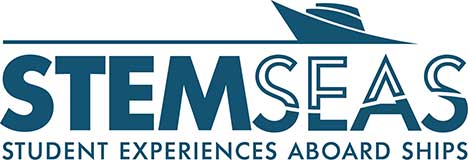Mentors
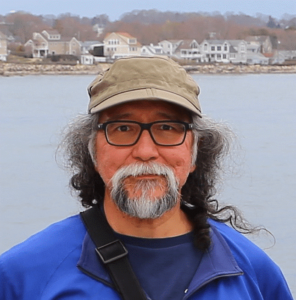
Joe Montoya is a Professor of Biological Sciences and Director of the PhD Program in Ocean Science and Engineering at the Georgia Institute of Technology. He is a biological oceanographer and biogeochemist whose research focuses on the marine nitrogen cycle and the role of nitrogen-fixation in structuring the flow of nitrogen and carbon through planktonic ecosystems. His work is highly interdisciplinary, incorporating work in plankton biology, marine chemistry, and isotope biogeochemistry both at sea and in the lab. He has worked extensively in offshore waters, as well as in coastal regions influenced by the freshwater plumes of large rivers including the Amazon, Mekong, and Mississippi. He has a strong interest in education and outreach and was a founding member of the Georgia Tech College of Sciences Diversity, Equity, and Inclusion Council. In 2022, he became director of the Graduate Program in Ocean Science and Engineering (OSE) at Georgia Tech.
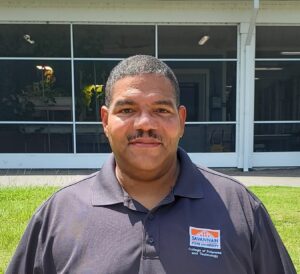
Dr. Dwight Ebanks, is an Assistant Professor in the Department of Marine and Environmental Sciences at Savannah State University, in Savannah, GA. He earned a Ph.D. in Marine Biology and Fisheries from the University of Miami and has a BS in Marine Biology and MS in Marine Sciences both from Savannah State University. His research interests include understanding the physiological responses in marine fishes to Ocean Acidification, trophic dynamics of estuarine fishes, elasmobranch (shark, rays, skates and sawfishes) electroreception and marine science education.
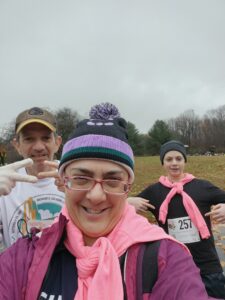
Sharon Katz Cooper is based at Columbia University and is one of the lead PIs for the STEMSEAS program. She also oversees Education and Outreach programs for the U.S. office of the International Ocean Discovery Program. She first learned about IODP when working for the Smithsonian on developing the Sant Ocean Hall, during which she sailed on the very first School of Rock in 2005 and became permanently hooked. Now a full-fledged accidental geologist, she creates and implements programs around the world to encourage students, teachers and the general public to fall in love with STEM and get their minds blown by amazing Earth science going on every day. She is passionate about increasing pathways into the geosciences and providing opportunities for students from all walks of life. In other parts of her life, she is a children’s book author, wife, mom, cook and laundry-folder. She is married and has three boys.
Participants
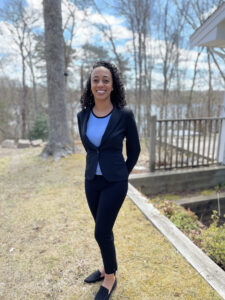
Onjalé (Onji) Scott Price has a BS in Civil Engineering from Embry-Riddle Aeronautical University and an MBA from Western Governors University. Onji is an active member of the Falmouth community (which encompasses the village of Woods Hole), having served as a member of the Falmouth Select Board. She is dedicated and committed to making the STEM community more diverse and inclusive and is proud to be the Director of The Woods Hole Partnership Education Program (PEP).
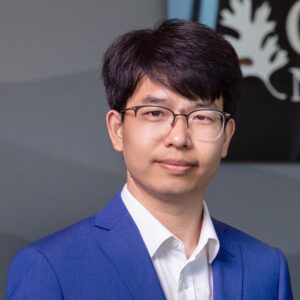
Dr. Chao Guan is currently an Assistant professor in the Department of Chemistry and Forensic Science at Savannah State University (SSU). Before joining SSU, he was a postdoctoral research associate at Oak Ridge National Laboratory (ORNL) in Oak Ridge from 2022 to 2023. he received his B.E. from Hubei Polytechnic University (2011), M.S. from Ningbo University (2015) and Ph.D. degree from King Abdullah University of Science and Technology (KAUST) (2019), respectively. After obtaining his Ph.D. degree, he became a research scientist at the University of New Mexico (UNM) and then postdoctoral research associate at University of Connecticut (UConn) for three years (2019-2022). His research interests include Polymer Upcycling, Conjugated Polymer, Organometallic Catalysis, CO2 Utilization and Reversible Hydrogen Storage. He has published more than 20 high-impact papers and two US patents, including JACS, PNAS, Green Chemistry, Polymer etc. With his multidisciplinary academic background and cross-field research experiences, he intends to devote myself to teaching and research in the field of organic and polymer chemistry.
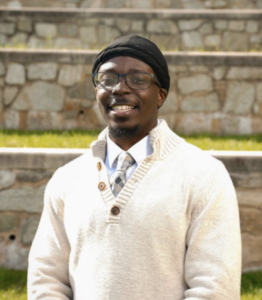
Dr. Jamell Dacon is a (Tenure-Track) Assistant Professor in the Department of Computer Science at Morgan State University, where he serves as the Director & Lead Principal Investigator of the Machine Intelligence and Data Science (MINDS) Lab, and a faculty at the Center for Equitable Artificial Intelligence and Machine Learning Systems (CEAMLS). His work is dedicated to harnessing AI, ML and Data Science to better understand the complex relationships between technology and society—his work is currently funded by the NIH, NSF and TMCF. He earned a Ph.D. and M.S. in Computer Science from Michigan State University in 2023 and 2020, respectively, and completed a B.S. in Mathematics and an A.S. in Computer Science at City University of New York—Medgar Evers College in 2018 and 2017, respectively.
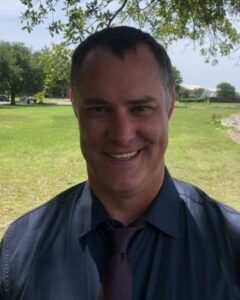
Dr. Eric Lewallen is currently an Assistant Professor in the Department of Biological Sciences at Hampton University where he teaches a variety of courses focused on fundamental biology and experiential learning. His research integrates bioinformatics, multi-omics, and geographic information systems to study the interactions of cells and organisms with their environment. Dr. Lewallen examines big data (e.g., RNA-seq, remote sensing) to better understand the mechanisms that influence patterns of genetic diversity and phenotypic heterogeneity.
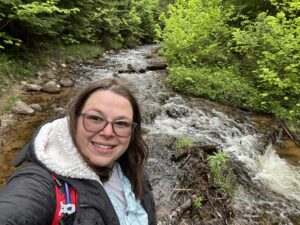
Becky MacKay (she/her) is an assistant professor of biology at Fort Valley State University. She is an ecologist interested in how parasite-mediated behavioral changes impact aquatic communities. She has worked in both marine and freshwater ecosystems but definitely prefers to be in the middle of the ocean over almost anywhere. She has a BS in zoology, an MS in marine science, and a PhD in biological sciences. While Becky does enjoy research, teaching is really where her passion lies, so getting to combine both research and teaching onboard a vessel is literally a dream job for her. Becky is also very proudly a mother of a 1.5 year old daughter, Noel, and will happily talk to you about her at any time, even if you don’t ask.
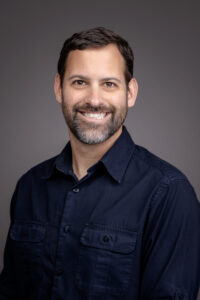
Mike Sanderson is a dedicated science educator with expertise in curriculum development, data-driven instruction, and educational technology. With a background in biological sciences and secondary science education has taught and led instructional initiatives across various educational settings. Currently a Science Instructional Specialist at the Fernbank Science Center in Atlanta GA, Mike supports educators in developing authentic research experiences and fostering student engagement. Mike holds an MAT in Secondary Science Education and MS in Applied and Environmental Microbiology. With a passion for innovation in science education, Mike continues to inspire students and educators through research-based teaching and instructional leadership.
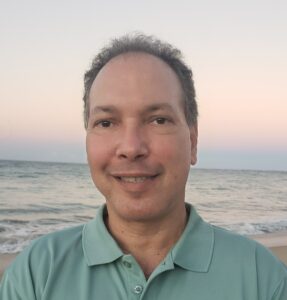
Edwin Cruz-Rivera is an Associate Professor in the Department of Biology at Morgan State University in Baltimore. He is a chemical and nutritional ecologist interested in coastal, oceanic, and freshwater, ecosystems. His research group conducts studies ranging from animal behavior, invertebrate taxonomy, and biodiversity, to the ecology of consumer-prey interactions, invasive species, and harmful blooms. He has conducted studies in tropical and temperate zones and has held faculty positions in the USA, Egypt, Bangladesh, and the US Virgin Islands, where he holds a courtesy appointment and returns to continue research during the summers. He also serves on the board of a non-profit organization championing environmental justice.
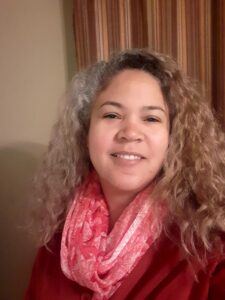
Roseni Padilla serves as the Program Manager for STEMSEAS at Columbia University, overseeing logistics and providing administrative support for undergraduate students aboard NSF-funded research vessels. In this role, she facilitates their experience as they sail with expert faculty, participating in hands-on geoscience and oceanography activities.
Before joining STEMSEAS, Roseni spent nearly two decades in the airline industry, specializing in customer service and operations management. Her experience in this fast-paced environment sharpened her skills in logistics, organization, and problem-solving—expertise she now applies to her role at STEMSEAS.
Born in the Dominican Republic, Roseni immigrated to the United States with her family in 1992. A proud first-generation college graduate, she earned a Bachelor’s degree in Business Administration with a concentration in Management Information Systems from Montclair State University in 2002.
Outside of work, Roseni enjoys traveling and spending quality time with her husband and two children. She is passionate about creating opportunities for students to explore careers in science and strongly believes in the transformative power of education.
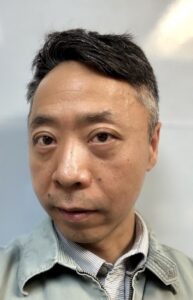
Tao Huang serves as an Assistant Professor in the Department of Chemistry and Forensic Science and as the Forensic Science Program Coordinator at Savannah State University. My research focuses on the development of ultra-small nanoparticles (less than 5 nm) coated with peptides or protein ligands. These functionalized nanoparticles exhibit exceptional biocompatibility, showing no toxicity across most cell strains, and are highly effective for single-molecule detection in both in vitro and in vivo applications. Additionally, I have explored nanoparticle toxicities in goldfish and their embryos, further advancing the field of nanotechnology.
Collaboration is a cornerstone of my work, including ongoing partnerships with Dr. Kai Shen on various Department of Defense (DoD) grants. My research includes studying rat aorta A10 cells on surfaces of differing stiffness, analyzing vinculin gene expression via RT-qPCR, and employing reference genes for precision. Currently, I oversee mouse colonies in studies related to Gulf War Syndrome and Circadian Rhythm Disruption, involving chemical administration, behavioral observations, drug treatments like Donepezil, cryo-sectioning brain regions (cerebral cortex, hippocampus, and cerebellum) for imaging, and RNA sequencing analysis of brain thin sections.
Moreover, I am actively integrating real-world problem-solving into the forensic toxicology curriculum through a current grant, bridging innovative research with education to inspire the next generation of forensic scientists.
